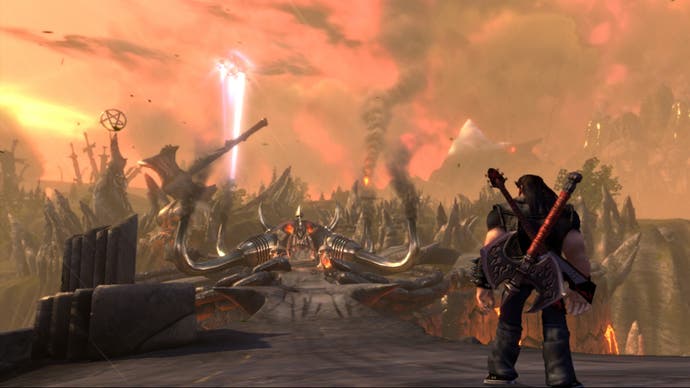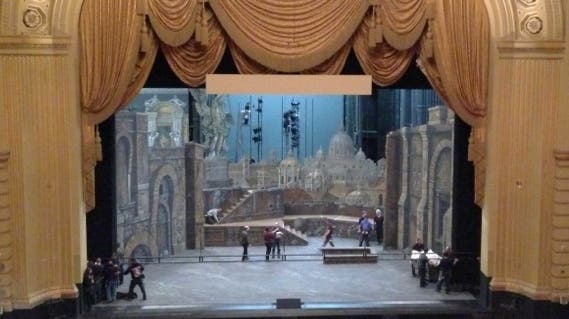Someone should make a game about: Stage management
Ode to the occupational octopus.
A few years ago, my brother took me to see his job. It was an exciting prospect, seeing as I had no idea what it was my brother actually did. My brother is a freelance stage manager and stage technician. Usually that term is used in theatre, but as job titles and responsibilities change and migrate, it's now a term that's also used for people like him who work in exhibitions and concert management.
My brother is the original cool dude™, someone who couldn't sit still for long enough to play a game, and as such I was surprised to find how... gamey his job is. You know that moment in a town-builder when one end of the city burns while on the other end angry people start marching through the streets and another pop-up informs you there's a tornado on the way? That's what stage management looks like. Prior to a concert, for example, there's primarily the technical part to take care of - cameras and sound equipment need to be set up, stages including lighting need to be built according to artist specifications, and everything needs to be tested continuously. Often it sounds like game development with regards to how eventually everything comes together seems to be an affair built on luck and lots of gaffer tape, seeing as even the most expensive equipment is prone to overheating, misbehaving or simply not working in tandem with anything you didn't bring to the production yourself. The technical knowledge required alone makes me think of a puzzle, or a game like Into the Breach, where you have to consider how every skill a unit has can work in your favour but also spectacularly misfire depending on outside conditions.

There's also the management component, which puts him in charge of assigning tasks, itemising and providing organisers with schedules and updates on progress. This can range from telling artists when the stage is ready for rehearsals, to knowing where all the bottled water has gone. You could build half a game around the social intricacies that arise when your job as the intermediary between organisers and technicians requires you to translate an organisational request into something that's technically feasible. Not to mention that talking to corporate customers versus a rowdy bunch of technicians (get it? Rowdy? Roadie?) actually requires a change in demeanour.
As a stage manager, you're equally on during the show and the exhibition as you are ahead of the event, and each of them poses different challenges. That's why I think the human element that arises from this organisational microcosmos is stronger than, say, managing a whole community. You press the button that makes flames shoot into the air on stage, causing a scream of excitement from the audience, but you also put the tape marker down that told artists where to stand so they would be safe. You walk the halls during an exhibition to make sure stage upcoming events are still on schedule, marvelling at the people in cosplay who queued to see their favourite entertainer. Depending on the breadth of your responsibilities, there's always a lot to do, but in exchange there's so many different worlds to see.

